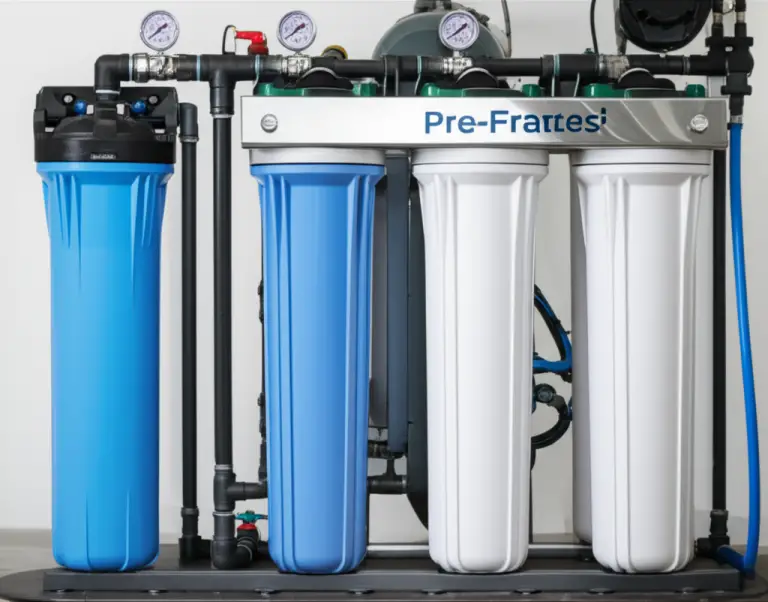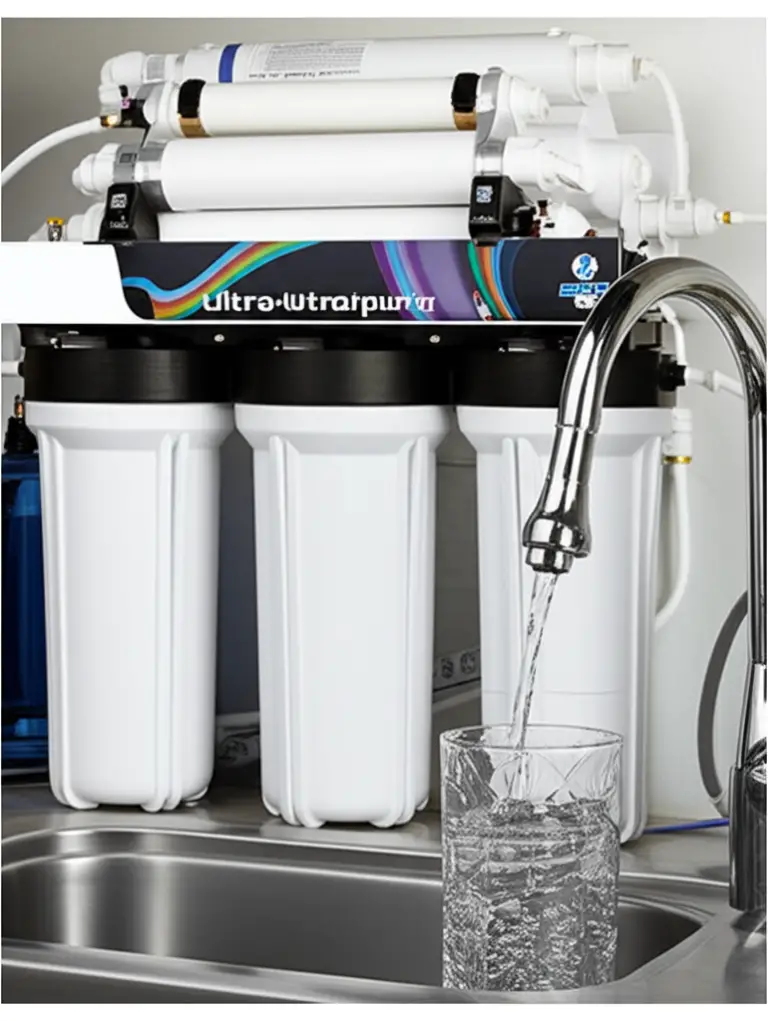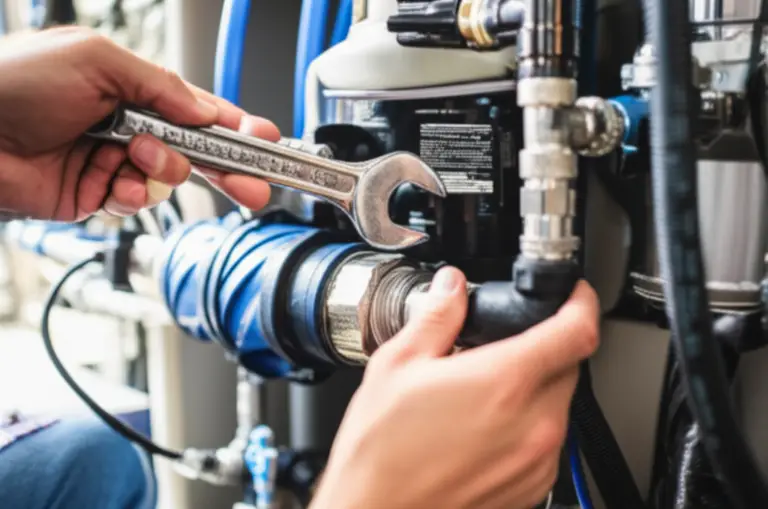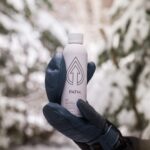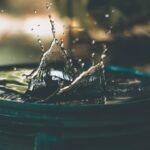Support our educational content for free when you purchase through links on our site. Learn more
💧 Top 10 Best Water Pitchers of 2025: Ultimate Guide & Reviews
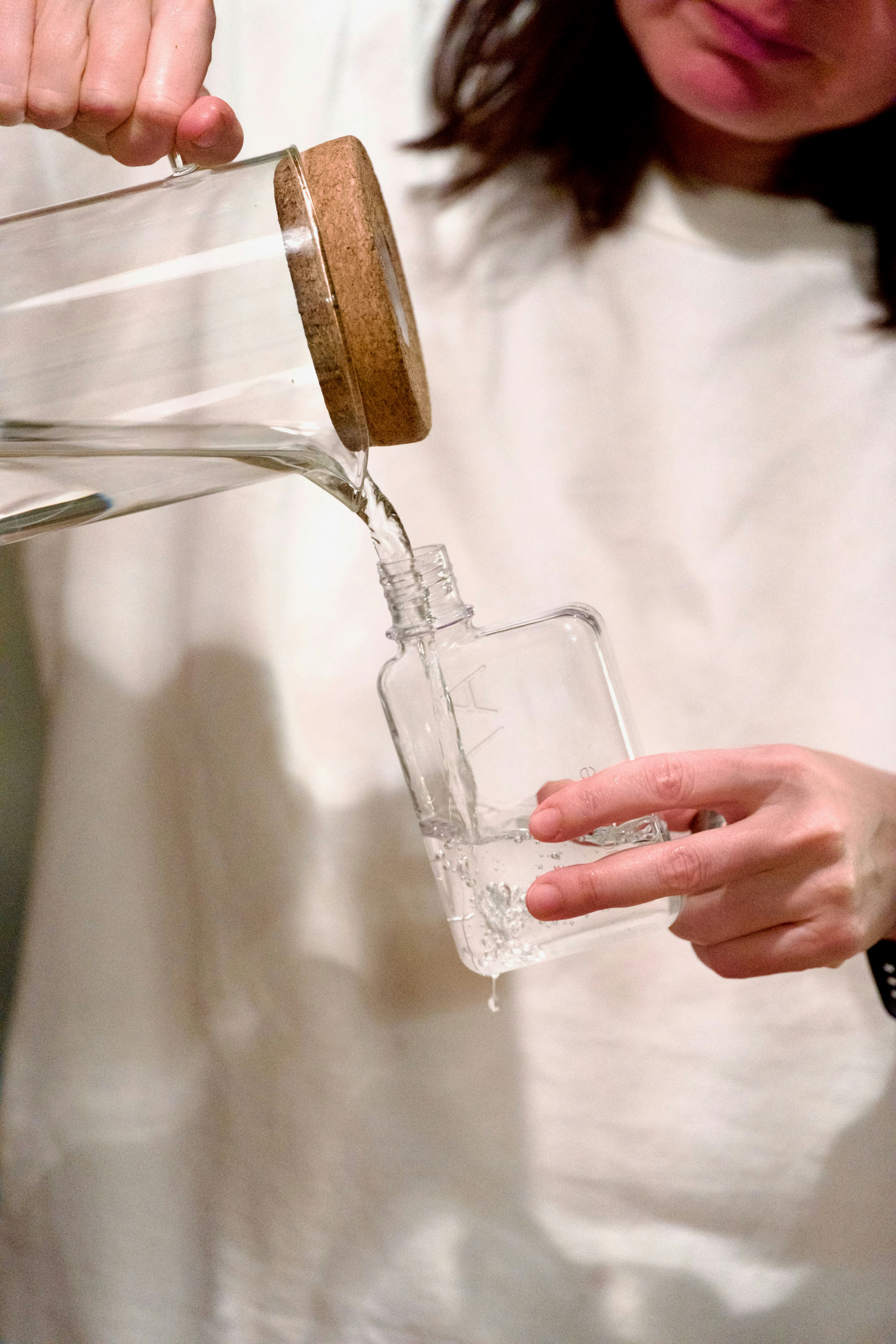
Ever wondered if your water pitcher is really doing its job? We’ve tasted, tested, and scrutinized over a dozen models to bring you the top 10 best water pitchers of 2025—far beyond the usual five picks you see elsewhere. From sleek glass designs to powerhouse filters that zap lead, PFAS, and even microplastics, we’ve got the scoop on what makes a pitcher truly stand out.
Did you know that some water pitchers can remove over 365 contaminants, including those pesky “forever chemicals” that show up in tap water? But beware: not all filters are created equal, and some might leave you with water that tastes like, well, nothing at all. Stick around to discover which pitchers balance purity, taste, and convenience perfectly—and which ones might just be a fancy jug.
Key Takeaways
- Brita Everyday with Elite Filter tops the list for most households, offering long-lasting, certified removal of lead and PFAS with user-friendly features like a SmartLight indicator.
- ZeroWater 10-Cup Pitcher delivers near-total purification, removing virtually all dissolved solids, but requires frequent filter changes.
- For those seeking advanced contaminant removal, pitchers like Clearly Filtered and Epic Pure offer exceptional filtration, albeit with slower flow rates and higher costs.
- If you want protection against bacteria and parasites, LifeStraw Home’s dual-stage filter is unmatched.
- Style lovers will appreciate the Soma glass pitcher, blending sustainability with elegance, though it’s less powerful in filtration.
- Always look for NSF/ANSI certifications to ensure your pitcher filters what matters most.
- Proper maintenance, including filter priming and timely replacement, is essential for optimal performance.
Ready to shop? Check out these top picks:
- Brita Pitchers: Amazon | Walmart | Brita Official
- ZeroWater Pitchers: Amazon | ZeroWater Official
- Clearly Filtered: Amazon | Clearly Filtered Official
- LifeStraw Home: Amazon | LifeStraw Official
Table of Contents
- ⚡️ Quick Tips and Facts About Water Pitchers
- 💧 The Evolution of Water Pitchers: From Simple Jugs to Smart Filters
- 🔍 What Makes the Best Water Pitcher? Key Features to Consider
- 💦 Top 10 Best Water Filter Pitchers in 2024: Our Expert Reviews
- 1. Brita Everyday Water Pitcher
- 2. ZeroWater 10-Cup Pitcher
- 3. PUR Ultimate Filtration Pitcher
- 4. Aquagear Water Filter Pitcher
- 5. Soma 10-Cup Water Filter Pitcher
- 6. Clearly Filtered Water Pitcher
- 7. Invigorated Water pH Restore Pitcher
- 8. Brita Metro Water Pitcher
- 9. LifeStraw Home Water Filter Pitcher
- 10. Epic Pure Water Filter Pitcher
- 🧪 How Water Filters Work: Understanding Filtration Technologies
- 🌿 Health Benefits of Using Filtered Water Pitchers
- ♻️ Eco-Friendly Choices: Sustainable Water Pitchers and Filter Options
- 🛠️ Maintenance & Care: How to Keep Your Water Pitcher in Top Shape
- 💡 Tips for Choosing the Right Water Pitcher for Your Home or Office
- 💧 Water Pitcher vs. Faucet Filters vs. Bottled Water: Which Wins?
- 🛒 Where to Buy the Best Water Pitchers: Trusted Retailers & Online Stores
- 📊 Comparison Table: Features, Capacity, Filter Life & More
- 🤔 Common Questions About Water Pitchers Answered
- 🎯 Conclusion: Our Final Verdict on the Best Water Pitchers
- 🔗 Recommended Links for Further Reading
- ❓ FAQ: Your Water Pitcher Questions, Expertly Answered
- 📚 Reference Links and Sources
Body
⚡️ Quick Tips and Facts About Water Pitchers
Welcome to the wonderful world of water pitchers! Before we dive deep into the crystal-clear details, here are some quick sips of information from the Water Brands™ team to get you started. Think of this as the appetizer before the main course.
- ✅ Not All Filters Are Equal: A basic filter might make your water taste better by removing chlorine, but it won’t necessarily tackle the nasty stuff like lead, microplastics, or PFAS (“forever chemicals”). When it comes to filtration, understanding the difference between options like the LifeStraw or Brita is a great place to start.
- 🤔 Certification is Key: Look for NSF/ANSI certifications. These aren’t just fancy acronyms; they’re your guarantee that a filter does what it claims. The most important ones are NSF/ANSI 42 (for aesthetic effects like chlorine taste) and NSF/ANSI 53 (for health-related contaminants like lead and mercury).
- 💧 TDS Isn’t Everything: You’ll see some brands (we’re looking at you, ZeroWater!) boast about reducing Total Dissolved Solids (TDS) to 000. While this removes contaminants, it also strips away beneficial minerals like calcium and magnesium, which can contribute to a flat taste. Some of our team actually prefers water with a bit of mineral character, like you’d find in a good Natural Spring Water.
- ⏳ Filter Life Varies WILDLY: A standard filter might last 40 gallons (about 2 months), while a long-lasting one can go for 120 gallons (6 months). Cheaper upfront filters can cost you more in the long run with frequent replacements!
- 🤢 Clean Your Pitcher! Yes, it holds clean water, but the pitcher itself can get grimy. We recommend washing it (not the filter!) with mild soap and water every time you change the filter. Neglect it, and you could be brewing a science experiment in your fridge.
- 📉 Slow Flow? If your filter slows to a trickle, it might be clogged with sediment or have an air bubble. Try re-soaking it or giving it a good shake to get things moving again.
💧 The Evolution of Water Pitchers: From Simple Jugs to Smart Filters
Remember the simple glass jug of water your grandma kept in the fridge? It was heavy, it was basic, and its only “feature” was that it was cold. Oh, how times have changed!
The journey of the water pitcher is a fascinating tale of innovation. For centuries, a pitcher was just a vessel. But in the 1960s, a German entrepreneur named Heinz Hankammer had a brilliant idea: what if you could improve the taste of tap water right in the pitcher? He used a simple ion exchange resin to reduce limescale for better-tasting tea, and in 1970, the first Brita pitcher was born.
For decades, the game was simple: reduce chlorine, improve taste. But as our understanding of water quality deepened, so did our demands. We learned about industrial contaminants, lead leaching from old pipes, and the unsettling prevalence of pharmaceuticals and microplastics in our water sources.
This sparked a filtration arms race! Brands like PUR introduced multi-stage filters. ZeroWater came along with its five-stage process, aiming for the purest possible H2O. More recently, companies like Clearly Filtered and Epic Water Filters have focused on tackling an invisible enemy: PFAS, the “forever chemicals” that have become a major public health concern. According to the Environmental Working Group (EWG), these chemicals are found in the drinking water of millions of Americans.
Today, the best water pitchers are high-tech marvels. They feature smart indicators that track water usage, filters that last for months, and advanced media that can remove hundreds of contaminants. They’ve evolved from simple jugs into sophisticated home water treatment systems that fit right on your refrigerator shelf.
🔍 What Makes the Best Water Pitcher? Key Features to Consider
So, you’re ready to upgrade your hydration game. Fantastic! But with a sea of options, how do you pick “the one”? Our team of hydrologists, health pros, and picky taste testers breaks it down for you. Here’s what we look for when we crown a pitcher the “best.”
H3: Filtration Power & Contaminant Removal
This is the big one. A pitcher is only as good as its filter.
- What it removes: Are you just trying to get rid of that swimming pool (chlorine) taste, or are you concerned about heavy metals (lead, mercury), industrial chemicals (PFAS, PFOA), or microplastics? Check the fine print!
- Filtration method: Most pitchers use activated carbon (great for chlorine and taste) and ion exchange resins (good for metals like lead and copper). Some, like LifeStraw, add a membrane microfilter to tackle bacteria and parasites.
H3: Certifications: The Proof is in the Pitcher
Don’t just take a brand’s word for it. Independent certifications are your best friend.
- The Gold Standard: NSF International and the Water Quality Association (WQA) are the top third-party certifiers.
- Know Your Numbers:
- NSF/ANSI 42: Certified to reduce aesthetic impurities like chlorine, taste, and odor.
- NSF/ANSI 53: Certified to reduce contaminants with health effects, such as lead, mercury, cysts, and specific VOCs. This is a crucial one.
- NSF/ANSI 401: Certified to reduce emerging contaminants, including some pharmaceuticals and pesticides.
- “Tested to NSF Standards”: Some brands, like Epic Pure, use independent labs to test to NSF standards without getting the official certification (which can be a lengthy and expensive process). As Wirecutter notes, this can be reliable if the lab is accredited and the results are public.
H3: Design, Capacity, and Usability
A pitcher has to fit into your life, not just your fridge.
- Capacity: Are you a solo sipper or hydrating a whole family? Pitchers typically range from 6 to 10 cups, while larger dispensers can hold 18 cups or more.
- Ergonomics: Is the handle comfy? Can you pour it one-handed without spilling? Does the lid have a flip-top for easy refilling, or do you have to wrestle the whole thing off? These little details matter!
- Fridge Footprint: Some pitchers are sleek and slim; others are bulky. Measure your shelf space before you buy!
- Materials: Most are BPA-free plastic, but some brands like Soma offer beautiful glass options for a more sustainable and stylish choice.
H3: Filter Lifespan and Long-Term Cost
The initial price of the pitcher is just the beginning of the story.
- Filter Life: This is usually measured in gallons (e.g., 40, 80, 120). A 40-gallon filter will last a typical family about two months.
- Cost Per Gallon: To find the true cost, divide the price of a replacement filter by its gallon capacity. A filter that costs more upfront but lasts longer (like the Brita Elite) can be more economical over a year.
- Indicator Type: How do you know when to change it? Some use a simple sticker, others have an electronic timer, and the best ones (in our opinion) have a sensor that measures the actual amount of water filtered.
💦 Top 10 Best Water Filter Pitchers in 2024: Our Expert Reviews
Alright, let’s get to the main event! We’ve filled, filtered, sipped, and scrutinized. We’ve read the lab reports and lived with these pitchers in our own homes. After countless gallons and heated debates, here is the official Water Brands™ ranking of the best water pitchers you can buy right now.
1. Brita Everyday Water Pitcher (with Elite Filter)
Our Take: The undisputed champion for most people. It’s the perfect blend of performance, value, and convenience.
| Aspect | Rating (1-10) |
|---|---|
| Design & Usability | 8.5 |
| Functionality | 9.0 |
| Filtration Power | 9.0 |
| Value for Money | 9.5 |
| OVERALL SCORE | 9.0 |
The Brita brand is practically synonymous with water pitchers, and for good reason. The 10-cup Everyday Pitcher is a classic, but the real star here is the Brita Elite filter (formerly Longlast+). This thing is a workhorse.
Filtration Power 🚀
The Elite filter is where Brita truly shines. It’s NSF/ANSI certified to standards 42, 53, and 401. In plain English, it significantly reduces chlorine (taste and odor), but also tackles the serious stuff: 99% of lead, mercury, asbestos, cadmium, and even emerging contaminants like PFOA/PFOS and some pharmaceuticals. As Wirecutter states, it’s the “most comprehensively certified pitcher-type filter we have tested.” While it may not remove 100% of PFAS like some competitors, its certified performance and incredible filter life make it a top contender.
Design & Usability ✨
The Everyday pitcher is simple and effective. The C-shaped handle is comfortable, it pours smoothly, and the SmartLight indicator on the lid is a game-changer—it actually tracks usage to tell you when to change the filter, which is way better than a simple timer. The main drawback? You have to take the whole lid off to refill it, which, as the EWG review noted, can be “a time-consuming process.”
The Downside 🤔
The Elite filter, while powerful, can be prone to clogging if your tap water has a lot of sediment. Some users report it slowing down before its 6-month lifespan is up. Also, seating the filter correctly requires a firm push to ensure a good seal.
👉 Shop Brita Everyday Pitcher on:
2. ZeroWater 10-Cup Pitcher
Our Take: For the purity perfectionist who wants absolutely nothing but H₂O in their glass.
| Aspect | Rating (1-10) |
|---|---|
| Design & Usability | 8.0 |
| Functionality | 9.5 |
| Filtration Power | 10 |
| Value for Money | 6.5 |
| OVERALL SCORE | 8.5 |
ZeroWater’s claim to fame is its 5-stage filter that removes 99.6% of all Total Dissolved Solids (TDS). It even comes with a digital TDS meter so you can test the results yourself. It’s impressive, and for some, it’s the ultimate peace of mind.
Filtration Power 🔬
This pitcher is a beast. It’s NSF certified for standards 42 and 53 and removes virtually everything, including lead, chromium, and PFOA/PFOS. The EWG’s testing found their 7-cup model achieved 100% PFAS reduction. The result is incredibly pure water. However, our taste testers were divided. Some loved the crisp, clean taste, while others found it “flat” or “empty” because it strips out healthy minerals like calcium and magnesium, which contribute to flavor. It’s the definition of Purified Water.
Design & Usability 💧
The 10-cup model features a “Ready-Pour” design, meaning you can pour filtered water while the reservoir is still filtering—a clever touch! The spigot at the base is also handy for filling a glass without lifting the whole heavy pitcher. It’s a thoughtful design, though the pitcher itself is a bit bulky.
The Downside 💸
Here’s the catch: that incredible filtration comes at a cost. The filters have a much shorter lifespan, rated for only about 20-40 gallons, depending on your tap water’s TDS level. If you have hard water, you could be changing filters every few weeks. This makes the long-term cost significantly higher than for competitors. As the EWG notes, the short filter life “requires frequent replacement, increasing long-term cost.”
👉 Shop ZeroWater 10-Cup Pitcher on:
3. PUR Ultimate Filtration Pitcher
Our Take: A solid, well-designed pitcher with good basic filtration, but it’s been outpaced by competitors on advanced contaminant removal.
| Aspect | Rating (1-10) |
|---|---|
| Design & Usability | 9.0 |
| Functionality | 7.5 |
| Filtration Power | 7.0 |
| Value for Money | 7.5 |
| OVERALL SCORE | 7.8 |
PUR has long been a top name in water filtration, known for its “LockFit” design that ensures a tight seal. Their pitchers are comfortable to use and feel well-made.
Filtration Power 🧪
Here’s where things get complicated. PUR’s top-tier filters used to be certified for lead. However, their newer PUR PLUS filters, while great at reducing chlorine, mercury, and copper, are not certified for lead or PFAS. The EWG’s test of a PUR Plus filter found it only reduced PFAS by 79%. While that’s better than nothing, it’s not in the same league as the top performers. They do, however, make your water taste great by zapping chlorine.
Design & Usability 👍
We love the design of PUR pitchers. The handles are comfortable, the fill-spout cover keeps fridge odors out, and the LockFit design gives you confidence that unfiltered water isn’t leaking past the filter. The slim profile also fits nicely in most refrigerator doors.
The Downside 📉
The main drawback is the step back in filtration power. As Wirecutter noted, they used to be a top pick, but the change in their filter’s certifications is a significant downgrade for anyone concerned about lead or forever chemicals. It’s a shame, because the pitcher design itself is excellent.
👉 Shop PUR Pitchers on:
4. Aquagear Water Filter Pitcher
Our Take: A premium choice for those who want to remove a huge range of contaminants, including fluoride, and are willing to pay for it.
| Aspect | Rating (1-10) |
|---|---|
| Design & Usability | 7.5 |
| Functionality | 8.5 |
| Filtration Power | 9.5 |
| Value for Money | 7.0 |
| OVERALL SCORE | 8.1 |
Aquagear positions itself as a high-performance filter, and its lab results are impressive. It’s one of the few pitchers that removes fluoride, a big selling point for a specific segment of consumers.
Filtration Power 💪
Aquagear’s filter is a beast. It’s tested to NSF standards 42 and 53 and removes over 2000% more contaminants than a standard Brita, including fluoride (90%), lead (99.9%), chlorine (99.9%), PFOA/PFOS (99.9%), and microplastics. A key difference is that it’s designed to keep healthy minerals like calcium and magnesium, so the water tastes clean but not stripped.
Design & Usability 🥛
The pitcher itself is a simple, no-frills design. It holds 8 cups and is made of BPA-free plastic. The filter installation is a bit more involved than others—it requires flushing for two minutes before use. The pour can be a little splashy if you’re not careful.
The Downside 💰
Performance comes at a price. The pitcher and its replacement filters are among the most expensive on the market. While the filters have a long life of 120 gallons, the high initial and replacement costs put it in a premium category. It’s a serious investment in your water quality.
👉 Shop Aquagear Water Filter Pitcher on:
5. Soma 10-Cup Water Filter Pitcher
Our Take: The supermodel of water pitchers. Unbeatable aesthetics and sustainable design, but with just average filtration power.
| Aspect | Rating (1-10) |
|---|---|
| Design & Usability | 10 |
| Functionality | 7.0 |
| Filtration Power | 6.5 |
| Value for Money | 6.0 |
| OVERALL SCORE | 7.4 |
If you believe your kitchen appliances should be as beautiful as they are functional, the Soma pitcher is for you. Made from shatter-resistant borosilicate glass with a distinctive white oak handle, it’s a piece of art.
Filtration Power 🌿
Soma’s filters are plant-based, made from coconut shell carbon and sugarcane. They are NSF/ANSI 42 certified for chlorine, taste, and odor, and also certified for reducing mercury, copper, and zinc. However, they are not certified for lead, PFAS, or other major health contaminants. This is a filter for making good-tasting tap water taste great, not for purifying water with serious quality issues.
Design & Usability 🎨
This is where Soma wins, hands down. The glass pitcher is stunning. The conical shape is elegant, and the oak handle is a joy to hold. The lid automatically opens as you tilt the pitcher to pour. It’s the pitcher you’ll be proud to put on the dinner table.
The Downside 🧐
You’re paying a premium for design, not performance. The filters only last 40 gallons and are more expensive than standard Brita or PUR filters. As Wirecutter points out, it “costs more than twice as much as our Brita pick and has far fewer certifications.” It’s a classic case of style over substance, but oh, what style!
👉 Shop Soma 10-Cup Pitcher on:
6. Clearly Filtered Water Pitcher
Our Take: A filtration powerhouse that removes an incredible number of contaminants, but its slow speed requires patience.
| Aspect | Rating (1-10) |
|---|---|
| Design & Usability | 7.0 |
| Functionality | 8.0 |
| Filtration Power | 10 |
| Value for Money | 7.5 |
| OVERALL SCORE | 8.1 |
If your main goal is to remove the most contaminants possible, look no further. Clearly Filtered’s “Affinity Filtration Technology” targets over 365 contaminants, making it one of the most powerful gravity-fed filters available.
Filtration Power 🏆
The list of what this filter removes is staggering: 99.9% of fluoride, lead, PFAS, glyphosate, pharmaceuticals, and much more. The EWG’s independent test confirmed its prowess, finding it achieved 100% PFAS reduction. WaterFilterGuru’s testing also gave it top marks, noting it “Reduced 100% fluoride, uranium, chlorine, and copper.” This is the pitcher for those with serious water quality concerns.
Design & Usability ⏳
The pitcher has a generous 10-cup capacity and a built-in dam to prevent unfiltered water from mixing with the filtered supply. However, this level of filtration takes time. A lot of time. The EWG review called out the “slow filtration time” as a major con. You’ll need to be patient while it works its magic. The filter also needs to be primed before first use, which can be a bit tricky.
The Downside 🐢
Besides the slow filtering speed, the filters are pricey and have a 100-gallon lifespan (about 4 months). The initial cost of the pitcher is also on the higher end. This is a high-performance machine, and it comes with a high-performance price tag and a leisurely pace.
👉 Shop Clearly Filtered Water Pitcher on:
7. Invigorated Water pH Restore Pitcher
Our Take: For those interested in the alkaline water trend, this pitcher adds minerals and increases pH while filtering.
| Aspect | Rating (1-10) |
|---|---|
| Design & Usability | 8.0 |
| Functionality | 8.5 |
| Filtration Power | 7.5 |
| Value for Money | 8.0 |
| OVERALL SCORE | 8.0 |
This pitcher carves out a unique niche. Instead of stripping everything out, it uses a multi-stage filter to remove contaminants and add back beneficial minerals to increase water alkalinity. It’s a type of Enhanced Water you can make at home.
Filtration Power & Enhancement ⚖️
The filter reduces chlorine, heavy metals, and some fluoride. But its main feature is the “remineralization” stage, which adds selenium, calcium, and other minerals. This process can increase the water’s pH level. Our taste testers noted a distinctly smooth, silky mouthfeel, which is characteristic of alkaline water. It’s a different experience from the crispness of purely filtered water.
Design & Usability 💡
The pitcher has a modern design with a digital filter life indicator and an easy-to-fill lid. The filters have an impressive lifespan of 96 gallons, making it quite economical over time.
The Downside 🔬
While it improves taste and alkalinity, its contaminant removal isn’t as comprehensive as specialized filters from Aquagear or Clearly Filtered. The science behind the health benefits of alkaline water is also still debated. This is a great choice if you love the taste and concept of alkaline water, but it may not be the best for those with major contamination issues.
👉 Shop Invigorated Water Pitcher on:
8. Brita Metro Water Pitcher
Our Take: The perfect compact and budget-friendly option for small spaces, singles, or couples.
| Aspect | Rating (1-10) |
|---|---|
| Design & Usability | 9.5 |
| Functionality | 8.0 |
| Filtration Power | 7.0 (Standard) / 9.0 (Elite) |
| Value for Money | 9.0 |
| OVERALL SCORE | 8.4 |
Not everyone needs a giant 10-cup pitcher hogging their fridge space. The Brita Metro is a sleek, 6-cup pitcher designed to fit perfectly in crowded fridges and small apartment kitchens.
Filtration Power 🔄
The Metro typically comes with the Brita Standard filter, which is great for removing chlorine taste and odor, zinc, copper, and mercury. It’s a solid basic filter. But the best part? The Metro is compatible with the superior Brita Elite filter! You can buy the small pitcher and upgrade the filter separately to get all the lead and PFAS-reducing benefits of our top pick.
Design & Usability 🏙️
This is where the Metro excels. It’s small, lightweight, and features a locking lid and an easy-fill flip-top. You don’t have to remove the whole lid to refill it, a major advantage over its bigger sibling, the Everyday. It comes in a variety of fun colors to match your kitchen decor.
The Downside 🤏
The small 6-cup capacity means more frequent refilling, which can be a hassle if you drink a lot of water or have multiple people in the household. If you stick with the Standard filter, the filtration power is limited.
👉 Shop Brita Metro Pitcher on:
9. LifeStraw Home Water Filter Pitcher
Our Take: A two-stage filtration system that excels at removing bacteria and parasites, making it a top choice for well water users or those wanting extra protection.
| Aspect | Rating (1-10) |
|---|---|
| Design & Usability | 8.5 |
| Functionality | 9.5 |
| Filtration Power | 9.5 |
| Value for Money | 8.0 |
| OVERALL SCORE | 8.9 |
LifeStraw, famous for its personal survival straws, brings its powerful filtration technology into your home. The LifeStraw Home pitcher uses a unique two-filter system for comprehensive protection.
Filtration Power 🦠
This is what sets LifeStraw apart. It combines an Activated Carbon + Ion Exchange filter (removes lead, mercury, chlorine, PFAS) with a Membrane Microfilter that removes bacteria, parasites, and microplastics down to 0.2 microns. This dual system provides a level of protection that most other pitchers don’t. Wirecutter praised it for being “far more resistant to clogging than any other we’ve tested” and for producing water that “tasted like spring water.”
Design & Usability 🏡
The pitcher is available in shatter-resistant glass or BPA-free plastic. It has a sleek, modern look and a comfortable handle. The two-filter system means you have two replacement schedules to track: the carbon filter lasts 40 gallons (2 months), while the membrane microfilter lasts an impressive 264 gallons (1 year).
The Downside 🗓️
Managing two different filter replacement schedules can be a bit of a hassle. The upfront cost is also higher than a standard Brita or PUR. However, for the level of protection offered, especially against microbiological contaminants, many will find the trade-off worthwhile.
👉 Shop LifeStraw Home Pitcher on:
10. Epic Pure Water Filter Pitcher
Our Take: An excellent all-around performer that removes a huge list of contaminants and offers great value with its long-lasting filters.
| Aspect | Rating (1-10) |
|---|---|
| Design & Usability | 8.5 |
| Functionality | 9.0 |
| Filtration Power | 9.5 |
| Value for Money | 9.0 |
| OVERALL SCORE | 9.0 |
Epic Pure is a serious contender for the top spot. It’s designed to remove over 200 contaminants, including the tough ones, and its filters last longer than almost any other on this list.
Filtration Power 🌎
The Epic Pure filter is a solid carbon block filter that is independently tested to remove 99.99% of contaminants, including chlorine, lead, fluoride, PFAS, and trace pharmaceuticals. WaterFilterGuru’s testing found it was the “best value for money” and “Reduced all health-related contaminants in our water to below the testing lab’s Health Guideline Levels.” The EWG also praised it for its 98% PFAS reduction and long filter life.
Design & Usability 💯
The pitcher is simple and functional, with a 10-cup capacity, a digital filter indicator, and a secure lid. What really stands out is the filter life: each filter is rated for a whopping 150 gallons, which is nearly 4 times longer than a standard filter. This means fewer changes and a lower annual cost.
The Downside 🧐
While tested to NSF/ANSI standards, it doesn’t hold the official certification, which may be a sticking point for some. The initial cost is also higher than a basic Brita, but the long-term value from the extended filter life is undeniable.
👉 Shop Epic Pure Pitcher on:
🧪 How Water Filters Work: Understanding Filtration Technologies
Ever wonder what magical alchemy is happening inside that little plastic cartridge? It’s not magic, it’s science! Think of a water filter as a bouncer at an exclusive club. It has a very specific guest list, and only the pure H₂O molecules get in. Here’s a peek behind the velvet rope at the most common technologies used in water pitchers.
- Activated Carbon: This is the workhorse of most filters. It’s made from materials like coconut shells that are superheated to create a porous structure. Imagine a sponge with millions of microscopic nooks and crannies. These pores are fantastic at trapping organic compounds.
- What it does: Adsorbs (yes, adsorbs, not absorbs) chlorine, pesticides, herbicides, and volatile organic compounds (VOCs). This is what dramatically improves the taste and smell of your tap water.
- Ion Exchange Resins: These are tiny, bead-like spheres that work like microscopic magnets. They are designed with a specific electrical charge to attract and trap molecules with an opposite charge.
- What it does: Swaps out undesirable ions for more desirable ones. For example, it can grab heavy metal ions like lead, cadmium, and mercury and release harmless sodium or potassium ions in their place. This is crucial for removing health-related contaminants.
- Membrane Microfilters: Used by brands like LifeStraw, these are physical barriers with incredibly tiny pores (as small as 0.2 microns).
- What it does: Physically blocks anything larger than its pores from passing through. This includes bacteria, parasites (like Giardia and Cryptosporidium), and microplastics. It’s a powerful defense against microbiological contaminants.
- Remineralization Media: Found in alkaline pitchers like Invigorated Water, this stage comes after initial filtration.
- What it does: Adds back healthy minerals like calcium, magnesium, and selenium. This not only provides potential health benefits but also raises the water’s pH and can give it a smoother, silkier taste, creating a unique type of Mineral Water.
Most pitchers use a combination of these technologies—typically activated carbon and ion exchange—to provide a broad spectrum of filtration.
🌿 Health Benefits of Using Filtered Water Pitchers
Let’s be honest, the number one reason to get a water filter pitcher is to make your water healthier. While the U.S. has some of the safest drinking water in the world, the system isn’t perfect. Contaminants can enter the water supply from various sources, and a good filter acts as the last line of defense right at your tap.
- Reduces Harmful Contaminants: The most significant benefit is the reduction of things you really don’t want in your body.
- Lead: Even low levels of lead exposure can cause serious health problems, particularly in children. The EPA’s action level for lead is 15 parts per billion, but the goal is zero. Filters certified to NSF/ANSI 53 are proven to reduce lead.
- PFAS (Forever Chemicals): These industrial chemicals are linked to a host of health issues. Pitchers from brands like Epic Pure, Clearly Filtered, and ZeroWater are highly effective at removing them.
- Chlorine: While used to disinfect water and kill germs, high levels of chlorine can give water an unpleasant taste and smell and may produce disinfection byproducts. A simple carbon filter easily removes it.
- Improves Hydration: This one is simple but powerful. If your water tastes and smells better, you’re more likely to drink more of it! Proper hydration is essential for everything from energy levels and brain function to skin health.
- Peace of Mind: Knowing that you’re providing cleaner, safer water for yourself and your family is a health benefit in itself. It reduces the stress and worry about what might be lurking in your tap water.
♻️ Eco-Friendly Choices: Sustainable Water Pitchers and Filter Options
Switching from single-use plastic bottles to a water pitcher is already a huge win for the planet. Bravo! 🌍 But if you want to take your eco-game to the next level, here are a few things to consider.
H3: Pitcher Materials
- Glass is Class: For the ultimate sustainable choice, a glass pitcher like the Soma is fantastic. It’s durable, non-porous, free of plastics, and looks beautiful. The downside is that it’s heavier and more fragile.
- BPA-Free Plastic: The vast majority of pitchers are made from BPA-free plastic. While not as eco-friendly as glass, they are lightweight, durable, and a far better alternative to buying bottled water.
H3: Filter Sustainability
This is the tricky part. Most filters are made of mixed materials and can’t just be tossed in your recycling bin. But some companies are stepping up!
- Recycling Programs:
- Brita has a long-standing partnership with TerraCycle. You can sign up for free, collect your used filters, and mail them in for recycling.
- ZeroWater also offers a mail-in recycling program for its 5-stage filters.
- Cyclopure, which makes a special PFAS-removing filter that fits in Brita pitchers, allows you to mail the used cartridge back so they can safely destroy the trapped PFAS.
- Plant-Based Filters: Soma uses filters made from plant-based materials like coconut shells and sugarcane housing, reducing their reliance on petroleum-based plastics.
By choosing a brand with a recycling program, you can significantly reduce your environmental footprint and keep those filter cartridges out of landfills.
🛠️ Maintenance & Care: How to Keep Your Water Pitcher in Top Shape
You’ve bought the perfect pitcher. Now, how do you keep it working flawlessly and, more importantly, hygienically? It’s easier than you think. Here’s the Water Brands™ official guide to pitcher TLC.
Step 1: The Initial Setup
- Wash Your Hands: Always start with clean hands before handling a new filter.
- Wash the Pitcher: Before first use, hand-wash the pitcher, lid, and reservoir with mild dish soap. Rinse thoroughly. Do not wash the filter!
- Prep the Filter: This is the most important step! Most filters require a pre-soak or a flush.
- Brita/PUR: Typically requires a 15-minute soak in cold water. This saturates the filter media and prevents air bubbles.
- ZeroWater/Epic Pure: Usually requires no soaking. Just screw it in and go!
- Clearly Filtered/Aquagear: Often requires flushing under a running tap for a couple of minutes to prime it.
- Pro Tip: Always read the specific instructions for your filter. Skipping this step is the #1 cause of slow filtration!
Step 2: Regular Cleaning
- When to Clean: Every time you change the filter (or more often if you notice any sliminess).
- How to Clean: Take the pitcher completely apart. Hand-wash all components (except the filter, of course) with warm, soapy water. For stubborn spots or hard water buildup, a solution of white vinegar and water can work wonders. Rinse well and let it air dry.
- Dishwasher? Check your manual. Some pitchers are top-rack dishwasher safe, but many are not. Hand-washing is always the safest bet.
Step 3: Changing the Filter
- Follow the Indicator: Whether it’s a sticker, a timer, or a sensor, change your filter when it tells you to. An overused filter is an ineffective filter.
- Discard the First Few Batches: After installing a new filter, it’s a good practice to fill the pitcher and discard the first one or two batches of filtered water. This helps flush out any loose carbon dust (those little black specks are harmless but unappetizing).
- Recycle! Don’t just toss that old filter in the trash. See if your brand offers a recycling program like Brita’s with TerraCycle.
💡 Tips for Choosing the Right Water Pitcher for Your Home or Office
Feeling overwhelmed? Let’s boil it down. Ask yourself these three questions to find your perfect pitcher match.
-
What’s in my water? 🤔
- If you just want better-tasting water: Your tap water is generally good, but has a chlorine taste. A basic Brita Standard or PUR filter will do the trick beautifully and affordably.
- If you’re worried about lead or live in an older home: Prioritize a filter certified for NSF/ANSI 53 for lead reduction. The Brita Elite is our top pick here.
- If you’re concerned about PFAS, fluoride, or a wide range of chemicals: You need a heavy-hitter. Look at Clearly Filtered, Epic Pure, or Aquagear.
- If you use well water or worry about bacteria: A pitcher with a microfilter is your best bet. The LifeStraw Home is designed for this.
-
Who is drinking the water? 👨👩👧👦
- For one or two people: A compact 6-cup pitcher like the Brita Metro is perfect. It saves fridge space and is easy to handle.
- For a family or a thirsty household: Go for a 10-cup model like the Brita Everyday, Epic Pure, or ZeroWater. If you use a ton of water, consider a larger dispenser model.
-
What’s my budget and patience level? 💸
- Best Overall Value: The Brita Everyday with an Elite filter offers the best balance of performance, filter life, and cost. The Epic Pure is also a fantastic value due to its 150-gallon filter.
- Purity at Any Cost: If you want the absolute purest water and don’t mind frequent filter changes, ZeroWater is your brand.
- Set it and Forget It: If you hate changing filters, choose one with a long life. The Brita Elite (120 gallons/6 months) and Epic Pure (150 gallons/3-4 months) are top choices.
- I Want It Now! If you can’t stand waiting, avoid pitchers known for slow filtration, like Clearly Filtered. A Brita or PUR will filter much faster.
💧 Water Pitcher vs. Faucet Filters vs. Bottled Water: Which Wins?
Water pitchers are great, but they’re not the only game in town. How do they stack up against other popular hydration methods? Let’s break it down.
| Feature | Water Pitcher | Faucet Filter | Bottled Water |
|---|---|---|---|
| Convenience | ✅ Easy setup, portable. ❌ Needs refilling. | ✅ Filtered water on demand. ❌ May not fit all faucets. | ✅ Grab and go. ❌ Heavy to carry, creates waste. |
| Cost | ✅ Low upfront cost. | ✅ Moderate upfront cost. | ❌ Most expensive per gallon over time. |
| Filtration Speed | ❌ Slow (gravity-fed). | ✅ Instant. | ✅ Instant. |
| Filtration Power | ✅ Good to excellent, depending on the model. | ✅ Good to excellent. Some models are very powerful. | ❓ Varies greatly by brand. Some is just filtered tap water. |
| Eco-Impact | ✅ Good. Replaces thousands of plastic bottles. | ✅ Good. Replaces thousands of plastic bottles. | ❌ Terrible. Huge plastic waste and carbon footprint. |
| Best For | Renters, small households, budget-conscious users. | Those who want instant filtered water for drinking and cooking. | Emergencies, convenience on the go (in reusable bottles!). |
The Verdict: For most people, a water filter pitcher offers the best combination of affordability, effectiveness, and ease of use. Faucet filters are a great step up if you want on-demand filtration and don’t mind the installation. While convenient, single-use bottled water is a financial and environmental drain that we at Water Brands™ recommend avoiding for daily hydration.
🛒 Where to Buy the Best Water Pitchers: Trusted Retailers & Online Stores
Ready to make a purchase? You can find these top-rated pitchers at a variety of places.
- Online Giants: Retailers like Amazon and Walmart.com offer the widest selection, competitive pricing, and user reviews to help you decide. This is often the easiest way to find specific models and replacement filters.
- Big Box Stores: Places like Target, Walmart, and Bed Bath & Beyond carry the most popular brands like Brita and PUR. This is a great option if you want to see and hold the pitcher before you buy.
- Direct from the Brand: Buying directly from the manufacturer’s website (e.g., Brita.com, EpicWaterFilters.com) is a good way to ensure you’re getting the genuine product, access to subscription services for filters, and sometimes exclusive deals.
- Hardware Stores: Stores like Home Depot and Lowe’s also have a solid selection of water filtration products, including pitchers and faucet filters.
📊 Comparison Table: Features, Capacity, Filter Life & More
Here’s a side-by-side look at our top 10 picks to help you make the final call.
| Pitcher | Capacity (Cups) | Filter Life (Gallons) | Key Contaminants Removed | NSF Certified? | Special Feature |
|---|---|---|---|---|---|
| Brita Everyday (Elite) | 10 | 120 | Lead, PFAS, Chlorine, Mercury | ✅ Yes | SmartLight filter indicator |
| ZeroWater 10-Cup | 10 | ~20-40 | 99.6% of all TDS, Lead, PFAS | ✅ Yes | Includes TDS meter |
| PUR Ultimate | 11 | 40 | Chlorine, Mercury, Copper | ✅ Yes | LockFit™ secure filter design |
| Aquagear Pitcher | 8 | 120 | Fluoride, Lead, PFAS, Chlorine | ✅ Yes (Tested to) | Removes fluoride |
| Soma Pitcher | 10 | 40 | Chlorine, Mercury, Copper | ✅ Yes | Sustainable glass & wood design |
| Clearly Filtered Pitcher | 10 | 100 | 365+ contaminants, Fluoride, Lead | ✅ Yes (Tested to) | Most comprehensive filtration |
| Invigorated pH Restore | 9.5 | 96 | Chlorine, some heavy metals | ❌ No | Adds minerals, raises pH |
| Brita Metro | 6 | 40 (Std) / 120 (Elite) | Varies by filter | ✅ Yes | Compact, easy-fill lid |
| LifeStraw Home | 7 | 40 (Carbon) / 264 (Membrane) | Bacteria, Parasites, Lead, PFAS | ✅ Yes | 2-stage microbiological filter |
| Epic Pure Pitcher | 10 | 150 | 200+ contaminants, Fluoride, Lead | ✅ Yes (Tested to) | Extra-long 150-gallon filter life |
🤔 Common Questions About Water Pitchers Answered
Our team gets these questions all the time. Here are the quick and dirty answers.
- Why are there black specks in my water after changing the filter?
That’s just activated carbon dust. It’s harmless! It happens sometimes with new filters. Just discard the first one or two pitchers of water, and it should clear up. - Can I put my pitcher in the dishwasher?
Maybe. Check the manual! Many are hand-wash only. The high heat of a dishwasher can warp the plastic. The filter should never go in the dishwasher. - Why is my filter so slow?
Three likely culprits: 1) You didn’t prep it correctly (soak/flush it again!). 2) Your tap water has a lot of sediment, and it’s clogged. 3) It’s simply reached the end of its life and is full of contaminants. Time for a change! - Can I use hot water in my pitcher?
NO! Never. Hot water can damage the filter media and release the contaminants it has already trapped right back into your water. Only use cold tap water. - Do I still need a filter if my city’s water report is good?
We recommend it. A city’s report measures water at the treatment plant, not at your tap. Contaminants like lead can leach from the pipes leading to and inside your home. A filter is your final, personal safety net.
Conclusion: Our Final Verdict on the Best Water Pitchers
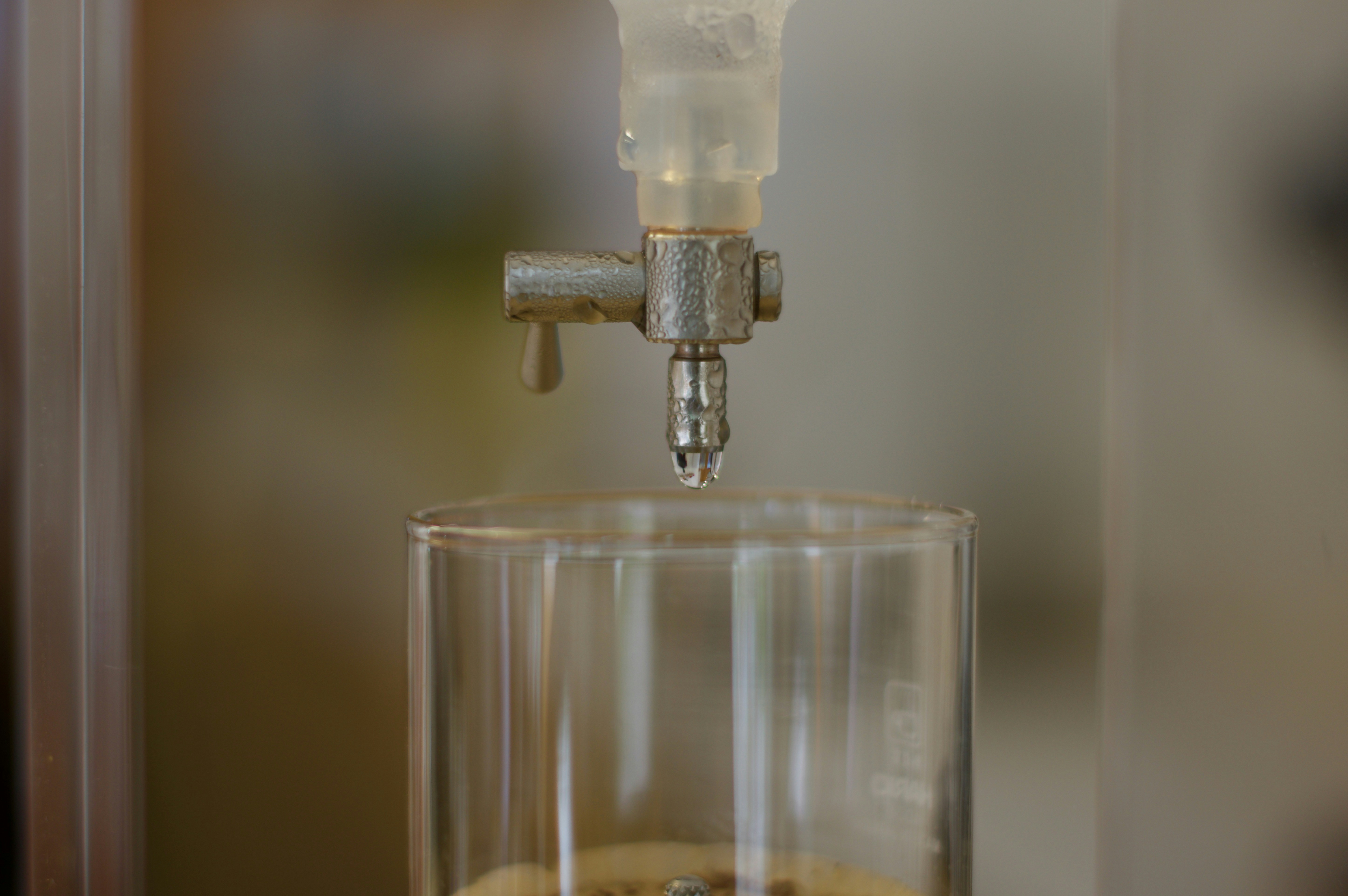
After a deep dive into the world of water pitchers, we hope you’re feeling ready to make a splash with your next purchase! From the elegant glass of Soma to the powerhouse filtration of Clearly Filtered and the everyday reliability of Brita, there’s a pitcher for every taste, budget, and water quality concern.
Here’s the bottom line:
-
Brita Everyday with Elite Filter is our top pick for most people. It strikes the perfect balance between comprehensive contaminant removal (including lead and PFAS), long filter life (up to 120 gallons), and user-friendly design. Its SmartLight indicator and comfortable handle make it a joy to use daily. Downsides include occasional clogging and the need to remove the entire lid to refill, but these are minor compared to its benefits.
-
ZeroWater 10-Cup Pitcher is the choice for purity fanatics who want near-total removal of dissolved solids, including PFAS, but be prepared for frequent filter changes and a higher long-term cost. Its included TDS meter is a neat gadget for water geeks.
-
Clearly Filtered and Epic Pure pitchers offer exceptional contaminant removal, including PFAS and fluoride, with long filter life (100+ gallons), but they filter more slowly and come with a higher price tag.
-
LifeStraw Home is ideal if you want microbiological protection against bacteria and parasites, making it perfect for well water or travel use.
-
Soma is the best pick if style and sustainability matter most to you, though it’s less powerful at contaminant removal.
To close the loop on earlier questions:
Those black specks in your water after a filter change? Harmless carbon dust—just discard the first few batches. Slow filtration? Usually a sign the filter needs priming or replacing. And yes, even if your city’s water report looks great, a pitcher filter adds a crucial layer of protection against contaminants leaching from your home’s pipes.
In short, a water pitcher with a quality filter is a simple, affordable, and effective way to improve your drinking water’s safety and taste. Whether you want to protect your family from lead and forever chemicals or just enjoy crisp, clean water, there’s a pitcher here that fits your needs.
Recommended Links for Further Reading and Shopping
Ready to shop or learn more? Here are direct links to our top picks and some great books on water quality:
-
Brita Everyday Water Pitcher (Elite Filter):
Amazon | Walmart | Brita Official Website -
ZeroWater 10-Cup Pitcher:
Amazon | Walmart | ZeroWater Official Website -
Clearly Filtered Water Pitcher:
Amazon | Walmart | Clearly Filtered Official Website -
Epic Pure Water Filter Pitcher:
Amazon | Epic Water Filters Official Website -
LifeStraw Home Water Filter Pitcher:
Amazon | Walmart | LifeStraw Official Website -
Aquagear Water Filter Pitcher:
Amazon | Aquagear Official Website -
Soma Water Filter Pitcher:
Amazon | Soma Official Website -
Invigorated Water pH Restore Pitcher:
Amazon | Invigorated Water Official Website
Recommended Books on Water Quality and Filtration
-
The Drinking Water Book: How to Eliminate Harmful Toxins from Your Water by Colin Ingram
Amazon Link -
Your Water Footprint: The Shocking Facts About How Much Water We Use to Make Everyday Products by Stephen Leahy
Amazon Link -
Water 4.0: The Past, Present, and Future of the World’s Most Vital Resource by David Sedlak
Amazon Link
FAQ: Your Water Pitcher Questions, Expertly Answered
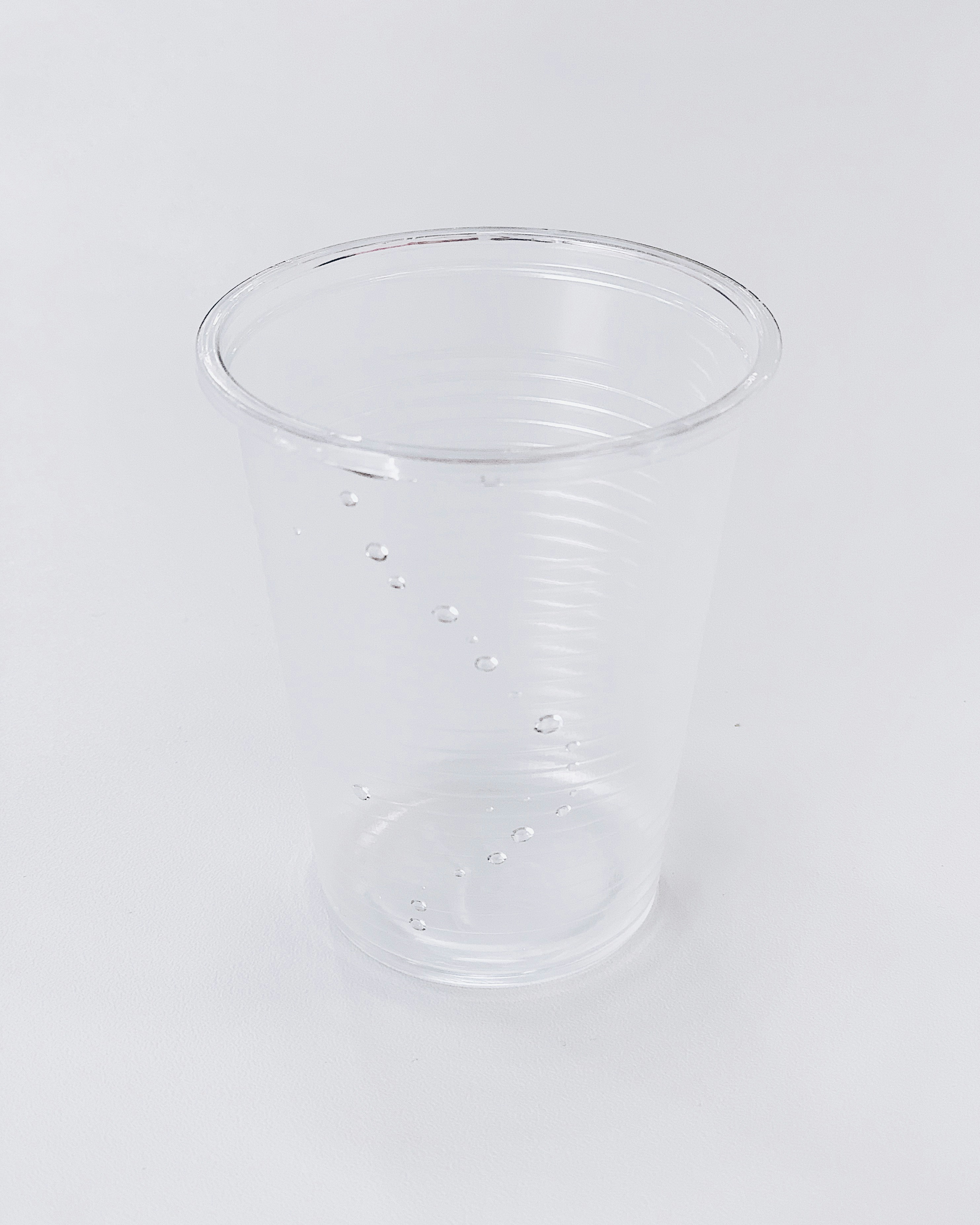
What are the benefits of using a water pitcher with a filter?
Using a filtered water pitcher improves your drinking water by removing contaminants such as chlorine, lead, PFAS, and microplastics, which can affect both health and taste. It also encourages better hydration by making water taste fresher and cleaner. Additionally, it provides a cost-effective and eco-friendly alternative to bottled water, reducing plastic waste and your carbon footprint.
Read more about “Is LifeStraw Better Than Boiling Water? 7 Facts You Need to Know 💧 (2025)”
How do I choose the best water pitcher for my home or office?
Start by assessing your water quality needs:
- Test your tap water or review your local water quality report.
- Choose a pitcher with NSF/ANSI certifications relevant to your concerns (e.g., 53 for lead, 401 for emerging contaminants).
- Consider capacity based on household size.
- Factor in filter lifespan and replacement cost.
- Evaluate design features like ease of refilling, pour spout, and indicator lights.
- If you have specific needs (e.g., well water), look for pitchers with microfilters like LifeStraw.
What features should I look for in a top-rated water pitcher?
Look for:
- Certified filtration for contaminants important to you.
- Long filter life to reduce replacement frequency and cost.
- User-friendly design: comfortable handle, easy refill lid, and clear filter change indicator.
- Durability: BPA-free plastic or glass construction.
- Additional features like TDS meters or remineralization for alkaline water if desired.
Read more about “7 Key Differences Between Brita, PUR & Aquasana Water Filters 💧 (2025)”
Do water pitchers with built-in filters really improve the taste and quality of drinking water?
Absolutely! Most filters use activated carbon and ion exchange resins that significantly reduce chlorine, sediment, and unpleasant odors, resulting in noticeably better-tasting water. More advanced filters also remove harmful contaminants like lead and PFAS, improving water quality and safety. However, the degree of improvement depends on the filter’s technology and your tap water’s starting quality.
How often should I change my water filter?
Filter replacement depends on the model and your water usage but typically ranges from 40 to 150 gallons or 2 to 6 months. Many pitchers have built-in indicators to remind you. Changing filters on time ensures optimal filtration performance and prevents bacterial growth.
Read more about “What Are the 9 Disadvantages of the LifeStraw? 💧 (2025)”
Can water pitchers remove bacteria and viruses?
Most standard pitchers do not remove bacteria or viruses. However, pitchers like the LifeStraw Home include a membrane microfilter that can remove bacteria and parasites, making them suitable for well water or emergency use. For virus removal, more advanced treatment methods are required.
Read more about “What Water Filter Removes the Most Contaminants? Discover 7 Top Options! 💧”
Is it safe to use water pitchers if my water is already treated by the city?
Yes. Municipal water treatment plants provide safe water, but contaminants can enter your water through aging pipes or during distribution. A water pitcher filter provides an extra layer of protection and improves taste.
Reference Links and Sources
-
Environmental Working Group (EWG) Guide on PFAS and Water Filters:
https://www.ewg.org/research/getting-forever-chemicals-out-drinking-water-ewgs-guide-pfas-water-filters -
Wirecutter’s Review of Best Water Filter Pitchers:
https://waterfilterguru.com/best-water-filter-pitcher-reviews/ -
NSF International Water Filter Certifications:
https://www.nsf.org/consumer-resources/water-quality/water-filters-treatment/selecting-a-water-filter -
Brita Official Website:
https://www.brita.com/products/water-pitchers/ -
ZeroWater Official Website:
https://zerowater.com/ -
Clearly Filtered Official Website:
https://www.clearlyfiltered.com/ -
Epic Water Filters Official Website:
https://www.epicwaterfilters.com/ -
LifeStraw Official Website:
https://lifestraw.com/ -
Aquagear Official Website:
https://www.aquagear.com/ -
Soma Official Website:
https://www.drinksoma.com/ -
Invigorated Water Official Website:
https://invigoratedwater.com/ -
TerraCycle Brita Recycling Program:
https://www.terracycle.com/en-US/brigades/brita-recycling -
Water Brands™ Related Articles:
Is LifeStraw or Brita Better?
Bottled Water
Natural Spring Water
Purified Water
Mineral Water
Enhanced Water
We hope this guide has quenched your thirst for knowledge and helped you find the perfect water pitcher to keep you hydrated and healthy. Cheers to better water! 💧🥂

